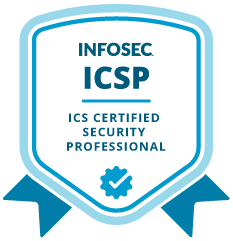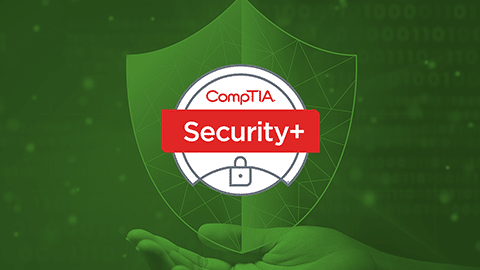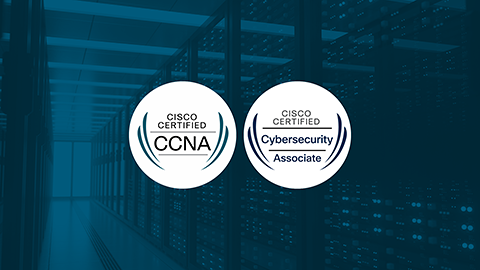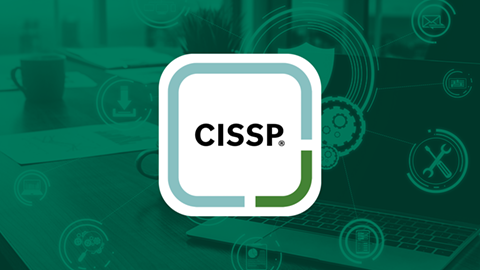
OT/ICS Certified Security Professional (ICSP) Training Boot Camp

What you'll learn
Training overview
From the power grid to water treatment facilities, ICS and SCADA OT controls our nation’s mission-critical infrastructure. Infosec’s OT/ICSP Boot Camp builds your security skills by teaching you how to assess, administer and secure these critical systems while gaining hands-on experience on the latest threats via our ICS/SCADA Cyber Range.
You’ll learn everything from field-based attacks to automated vulnerability assessments for OT. This boot camp also prepares you to become an OT/ICS Certified Security Professional and pass the ICSP certification exam.
What's included
Everything you need to know

- 90-day extended access to Boot Camp components, including class recordings
- 100% Satisfaction Guarantee
- Exam Pass Guarantee
- Exam voucher
- Free 90-day Infosec Skills subscription (access to 1,400+ additional courses and labs)
- Hands-on cyber ranges and labs
- Knowledge Transfer Guarantee
- Onsite proctoring of exam
- Pre-study learning path
- Unlimited practice exam attempts
Syllabus
Training schedule
Day 1
Introduction to class and ICS
ICS & SCADA overview
Optional group & individual study
Day 2
ICS security governance
ICS security governance
Optional group & individual study
Day 3
Pentesting ICS
Pentesting ICS
Optional group & individual study
Day 4
ICS security controls
ICS security controls
Optional group & individual study
Day 5
ICSP review
Take the ICSP exam
What makes the Infosec ICSP prep course different?
You can rest assured that the ICSP training materials are fully updated and synced with the latest version of the exam. With 20 years of training experience, we stand by our ICSP training with an Exam Pass Guarantee. This means if you don’t pass the exam on the first attempt, we’ll pay for your second exam at no additional cost to you!
Infosec success stories

"The team at Infosec was great from the start, and they were as excited about my journey as I was. They explained the value behind each training I was considering and how it could further my goals. Their enthusiasm was a great motivation throughout the boot camp."
Elle Autumn
EC-Council Certified Ethical Hacking Course: CEH Certification Training Boot Camp Read Elle's Story
"Infosec has uniquely prepared me for any CMMC retraining that will take place inevitably in the future. With them, it’s not just about completing the certification; it's about being a true contributor to the ecosystem."
James Ahern
Certified CMMC Assessor (CCA) Boot Camp Read James's Story
"The hands-on training was the best part. You have an instructor you can actually reach out to and ask questions — not only on the material, but also about things out in the wild with cybersecurity."
Eddie Quinones
CompTIA Security+ Certification Training Boot Camp Read Eddie's Story
"The Infosec CISM Boot Camp gave me the ability to intelligently explain why I'm making a decision. Ultimately, the C-suite is happy and they know, 'Hey, here's a person that we can rely on."
Mohammad Mirza
ISACA Certified Information Security Manager (CISM) Training Boot Camp Read Mohammad's StoryGuaranteed results
Our Boot Camp guarantees

Exam Pass Guarantee
If you don’t pass your exam on the first attempt, get a second attempt for free. Includes the ability to re-sit the course for free for up to one year (does not apply to CMMC-AB Boot Camps).

100% Satisfaction Guarantee
If you’re not 100% satisfied with your training at the end of the first day, you may withdraw and enroll in a different online or in-person course.

Knowledge Transfer Guarantee
If an employee leaves within three months of obtaining certification, Infosec will train a different employee at the same organization tuition-free for up to one year.
Who should attend

- SCADA system operators
- SCADA analysts
- Control systems engineers
- ICS and SCADA consultants
- IT and security professionals with a desire to learn how to protect critical infrastructure
Before your Boot Camp
Prerequisites
Award-winning training you can trust




Why choose Infosec?
Category
Infosec logo
SANS Institute
Training Camp
Global Knowledge (Skillsoft)
AI-powered, hands-on skill validation
12 Roles
Integrated for all roles
90 days
*Protects your investment if trained employees leave within three months of obtaining certification (Infosec will train a different employee at the same organization tuition-free for up to one year).
Explore our top boot camps






